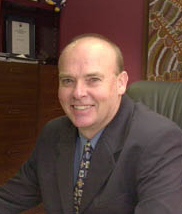“If you wanted to embark on a very effective program of damaging a child’s self-esteem and confidence, you would train their siblings to make consistent, derogatory and negative statements about their physical appearance.”
 Professor Paul Burnett, Pro Vice-Chancellor Research and Graduate Training at Charles Sturt University (CSU) has researched the way children are affected by positive and negative statements made by four groups he calls “significant others”, parents, teachers, peers and siblings.
Professor Paul Burnett, Pro Vice-Chancellor Research and Graduate Training at Charles Sturt University (CSU) has researched the way children are affected by positive and negative statements made by four groups he calls “significant others”, parents, teachers, peers and siblings.“Negative put-down statements by siblings were even more powerful than peer negative statements. Particularly when the focus of their statements is on physical appearance. How much kids like their looks is highly related to global confidence and self-esteem.”
On the eve of the Federal Government’s inaugural National Safe Schools Week (NSSW), it’s worth remembering that a lot of damaging bullying is done outside the schoolyard. “Parents have to take an active role in trying to reduce negative statements about physical appearance,“ says Professor Burnett, adding “there’s also a lot of work being done at the moment on internet bullying. The internet is a great vehicle for children to throw a barrage of negative and put-down comments, like “you’re gay”, “you are an idiot”, “no one likes you” or “you’re ugly” at other kids.”
Why do bullies do it? “The most credible theory is that bullies impress their peer group by picking on faults in other people. Physical appearance is one of the major areas they hone in on. For siblings, it’s about making you feel good in yourself by putting a sibling down. Feeling more superior than someone who’s close to us is self-enhancing.”
Julie Bishop, the Minister for Education, Science and Training, says Australian research shows that almost 20 per cent of boys and almost 15 per cent of girls report being victims of bullying at least once a week. She says the government is committed to ensuring our schools are “secure, happy learning environments.
“Students who are bullied experience lower self-esteem, higher levels of isolation, depression and absenteeism, poorer health and increased suicidal tendencies, compared with students who are not bullied,” Minister Bishop said. Professor Burnett agrees bullying can have devastating consequences, saying it affects confidence to tackle new situations, like interviewing for a job or learning to drive, “it is a significant debilitating effect on their growth as an individual”.
Professor Toni Downes, CSU Dean of the Faculty of Education welcomes the Federal Government’s initiative. “Just as Occupational Health and Safety now takes into account the well-being of staff at work, schools have been called to account to ensure that bullying is taken seriously and that’s overdue.”
Professor Burnett says the NSSW anti-bullying program could be effective only if it is on-going, with consistent consequences for bullies. “The crux of the whole bullying issue is developing a tolerance to difference, respect for others and to try and get the bullies to think about the impact of their behaviour. And at the same time, we need to give the victims skills to deal with verbal put downs by walking away, disengaging, not inflaming the situation or fighting back.”





Social
Explore the world of social